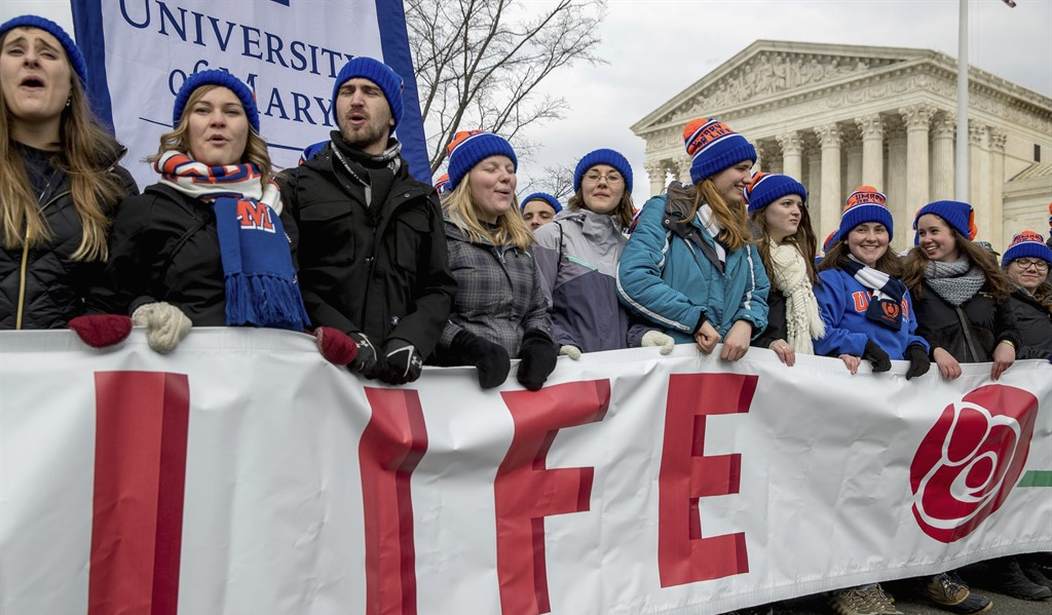Earlier this month, the Alabama Supreme Court upheld the state’s fetal homicide law in a ruling on a murder case.
Now, one of the justices is calling for the United States Supreme Court to revisit its own 1973 Roe v. Wade decision.
According to Alabama Supreme Court Justice Tom Parker, it is a “logical fallacy” for the government to consider a fetus a person when pursuing a homicide conviction, but not in the case of a woman wanting to terminate her pregnancy through an abortion.
The Alabama case in question involved Jessie Livell Phillips, who was found guilty by a jury of killing his wife when she was eight months pregnant. Phillips was convicted of murder of “two or more persons” by one act, under a 2006 Alabama law which stipulates that the word “person” include children in utero. He was subsequently sentenced to death.
Arguing that an unborn child is not, in fact, a person and therefore not guaranteed independent protections, Phillips appealed the death sentence, claiming that it was not a double murder.
The Alabama Supreme Court, however, rejected the appeal and upheld the death sentence, citing the state’s interest in the protection of both the born and the unborn.
But as in many other states, Alabama’s 2006 fetal homicide law makes an exception to fetal protections for women wanting to procure abortions. Justice Parker refers to this phenomenon as the “Roe exception.”
“I urge the Supreme Court of the United States to reconsider the Roe exception and to overrule this constitutional aberration,” Justice Parker wrote in his concurring opinion. “Return the power to the states to fully protect the most vulnerable among us.”
Recommended
This is not the first time Justice Parker has spoken out about what he and many others see as inconsistencies in the area of fetal protections.
According to The Washington Times, the Alabama Supreme Court ruled in 2012 that an injured pregnant woman could pursue wrongful death charges for her unborn baby. In 2013, Alabama allowed pregnant women to be prosecuted under the state’s chemical endangerment statute for endangering their fetuses through illegal drug use.
In both cases, Justice Parker pointed out that the rulings undermined the very basis of Roe v. Wade.
“Today, the only major area in which unborn children are denied legal protection is abortion,” Justice Parker argued in 2013, “and that denial is only because of the dictates of Roe.”
As to the recent ruling involving Jessie Livell Phillips, Justice Parker also pointed out that there is legal precedent for fetuses being parties to estate settlements and trusts, having had guardians appointed to them.
Pro-life advocates, however, seem to be divided over whether using fetal homicide law is the most ideal way to get the United States Supreme Court to revisit Roe v. Wade.
Clarke Forsythe, senior counsel for Americans United for Life, pointed to the fact that such arguments have been presented to the US Supreme Court since the 1990s, without success.
“They have uniformly refused to touch on these issues in the past,” said Forsythe.
But Lila Rose, a pro-life activist and president of Live Action, disagrees.
“Fetal homicide laws acknowledge what science has already proven: that a unique human life begins at the very moment of fertilization,” Rose stated. “Abortion laws reject that reality.”
What does seem certain is that forty-five years later, the Roe v. Wade decision continues to both divide the nation, and muddy the legal waters when it comes to the protection of human persons.
“The Roe exception,” wrote Justice Parker, “is the last remaining obstacle to the states' ability to protect the God-given respect and dignity of unborn human life.”

























Join the conversation as a VIP Member